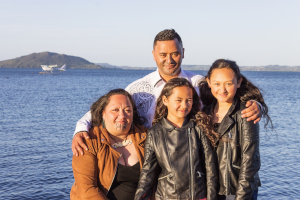Pick your step
1. Prioritising
Before you dive into creating a plan, it is important to understand what your financial priorities are.
Start by structuring your financial life one step at a time.
Here are some questions that may help you decide what to focus on first.
QUESTION 1
How are we currently organising and managing our monthly budget? Is this working?
QUESTION 2
What steps can we take to get more organised with our finances?
What steps can we take to get more organised with our finances?
QUESTION 3
We are about to move in together - how will we manage shared expenses?
QUESTION 4
How are we currently organising and managing our debt, savings and investments? Is this working?
How are we currently organising and managing our debt, savings and investments? Is this working?
Because so many emotions come up when money is discussed, it may be necessary to discuss some things more than once before they are agreed.
Remember to keep in mind that emotions can be easily triggered when certain sensitive issues are discussed – and what you might consider sensitive may be viewed differently by your partner.
2. Earnings
It is important to talk about how you earn money and if you want anything to change in the future such as working part-time, starting your own business or retiring early.
It’s important to find out how your partner feels and discuss the impact it will have on both your lifestyles.
It’s also critical to discuss what things will look like in your relationship in these common scenarios.
What happens if one of you wants to go back to school and needs support?

What if one of you earns significantly more?

What happens if one of you wants to be a stay-at-home parent if you have kids?

What if one of you loses your job and needs support?

Conversation starters
Below are a few conversation starters you could use.
I was thinking about studying next year - I know this will impact our family income; how do you feel about that?
We both have different incomes, and it feels like I don’t contribute the same as you. Is that weird for you?
3. Budgeting
Creating a budget with your partner is a great way of forging a good financial relationship whilst also creating a framework for a shared financial future.
Budgeting can also be a tool for discussing a whole range of issues that may be difficult to bring up.
By doing a budget together you both get to know the real cost of living in your household.
When only one partner handles the finances, the other can be genuinely unaware of costs:
CONSIDER
How much credit card debt your family is carrying.
CONSIDER
How high the heating bills are.
CONSIDER
How much it costs to bring up children.
How much it costs to bring up children.
This is information you both need to be aware of for a healthy financial partnership.
Even if one partner says they are happy not to know and want their partner to manage it all, the pressure and expectation associated with that level of responsibility can be stressful.
Over time financial situations change, and when one person holds all the responsibility it can be difficult to navigate the ingrained ways things are done.
Having both partners fully up to speed also protects you both from being left in the lurch if one of you were suddenly unavailable.
No one wants to have to learn how to pay the household monthly bills while handling a family crisis.
Budgets can
ESTABLISH A SPENDING PLAN
Plan out what you will do when you need to make a purchase or how you might allocate disposable income.
DISCOURAGE DEBT
Adopt a realistic plan to prevent yourself from sliding into financial over-commitment.
REDUCE STRESS
Having a budget will mean you'll know exactly what's happening with your money each week, fortnight and month.
FACILITATE FREEDOM
Financial freedom can be expanded by regularly re-evaluating your budget.
ALLOW FOR THE UNEXPECTED
Setting aside funds for surprise costs or emergencies can help reduce pressure.
PLAN FOR THE FUTURE
Budgeting will support the process of formally working out your future goals and plans.
INCLUDE HOLIDAYS AND ENTERTAINMENT
Budgeting provides a plan to assist with allocating money for weekly and monthly entertainment and vacation planning.
INCLUDE ROMANCE
It will allow you to put aside funds for date nights, special occasions or events that foster togetherness.
ENCOURAGE SAVINGS
If you plan your budget well and stick to it, you can factor in a savings scheme that will grow in no time.
ENCOURAGE PARTNERSHIP
Budgeting provides an opportunity to discuss and develop a plan that works for both. It shares the responsibility for relationship finances and holds each other accountable.
CREATE A REASON TO CELEBRATE
Achieving savings goals, paying off debt and seeing the results from your hard work is a great reason to celebrate.
Talking about priorities and spending is about lifestyle choices.
How couples spend and save can be easier to work out with a tool like a budget.
It is not uncommon when writing up your first budget for it to take a few hours or even days when you include time for reflection.
This is not because budgeting is a complicated process, just that it can take a number of conversations and considerations to develop.
These conversations are critical relationship builders.
A couple doing a budget together for the first time will involve writing numbers onto a form that have a lot of meaning and history attached to them – fears from the past and hopes for the future.
If your partner understands the need to plan but doesn’t want to do it, or they struggle to follow a budget, it may be difficult getting them to commit.
You can’t make someone do something they don’t want to, so it’s important to come up with a solution that works for both of you.
I was hoping we could find some time to sit down and have a look at our finances – it would be good to write down our bills and work out a saving plan. There are lots of budgets online we could use if you’re interested.

Tips for creating a basic budget plan
KEEP IT SIMPLE
Make it easy for both of you to participate in the discussion.
CREATE AN OUTLINE
Come up with a basic budget outline that covers the essential costs such as food, rent, petrol, everyday expenses and any money that is left over.
DISCUSS THE BENEFITS
It may help to talk about goals that have been expressed such as owning a home or travelling.
BE FLEXIBILE
It may be hard to stick to your budget in the beginning.
ACCEPT MISTAKES
It is common to make mistakes and under or overestimate costs.
CHECK IN WITH YOUR GOALS
See whether your budget aligns with your financial goals. It will help you clarify changes that may be needed to plan for the future.
4. Needs and wants
In relationships, it can be useful to create an agreed understanding about spending.
There are different views for what each person thinks is acceptable when it comes to large purchases or discretionary spending.
Discretionary expenses are defined as non-essential spending or, in other words, wants rather than needs.
Some couples will discuss most of their purchases while others choose to only discuss spending over a certain amount. This is particularly the case in situations where one person is more of a spender.
Below are two examples you can use to bring it up in conversation:
I was thinking about our spending and saving. I like the idea of discretionary money, can we have a talk about working out how much that might be?
You know how we often just buy things when we need to? It would be good for me if we could talk about what our spending limit is before we need to tell each other - you know for expensive things? Just so we both know what’s happening with our money.

Save your progress

“It is great to have the strategies and challenges come together so that you are learning together, sharing together and discovering together”
– Toolkit user
DEVELOPED BY
Good Shepherd NZ in partnership with Dr Ayesha Scott
AUT Finance Department
Good Shepherd NZ in partnership with Dr Ayesha Scott
AUT Finance Department
Disclaimer
The information, content and materials provided in our Healthy Financial Relationships Toolkit is for general informational purposes only and does not take into account the financial situation and/or particular needs of any person. Before making important financial decisions, you should seek professional advice if possible. This Toolkit contains links to other third-party websites. Such links are only for the convenience of the reader, user or browser. Good Shepherd NZ and AUT do not endorse the contents of third-party sites.
Did you find this useful?
We are a not-for-profit organisation working to improve the financial and social wellbeing of New Zealanders.
The resources on this website are provided free of charge to make sure they are available for people who need them.
If your organisation found these resources helpful, please consider making a donation to ensure we can continue supporting those people who need our help.
You can also make a donation, or set up a recurring donation, by contacting us directly




